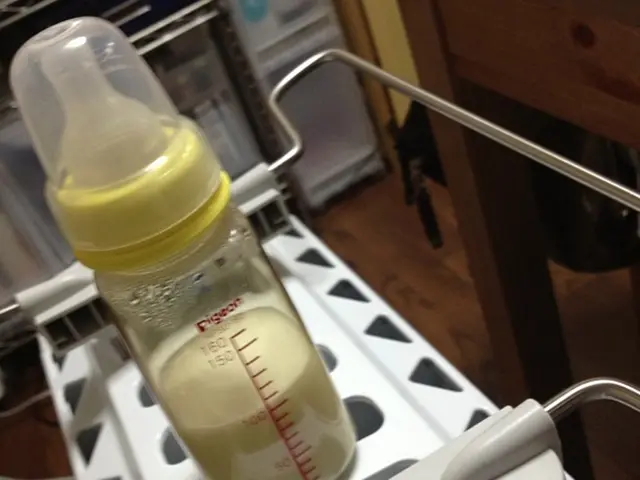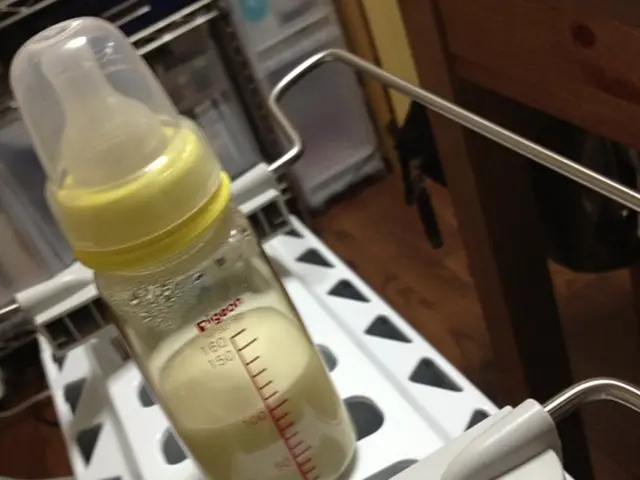Massive GOP House Bill Projected to Swell National Debt by $2.4 Trillion, According to CBO Report
Cutting Loose: The Unchecked House Republicans' Spending and Tax Plan
In a bold, controversial move, House Republicans have proposed a sweeping tax and spending cuts package that could add a whopping $2.4 trillion to the deficit over the next decade, according to the Congressional Budget Office's analysis.
This legislation, which narrowly passed last month, would also leave nearly 11 million more people uninsured in 2034, largely due to historically massive cuts to Medicaid.
This revelation, released on Wednesday, could muddle Senate Majority Leader John Thune's mission of crafting a version of the bill that would secure approval from his divided conference. Several GOP senators have voiced concerns about the House package's impact on the deficit and are advocating for deeper spending cuts. On the other hand, some are wary of the major reductions to the nation's safety net—particularly Medicaid—as outlined in the House bill.
The analysis bolsters billionaire Elon Musk's criticisms of the package, which he described as a deficit-busting "disgusting abomination" on Twitter. Musk, who recently stepped back from his role with the federal government, claimed that the bill would bankrupt America.
Senators began working on the legislation this week, but any changes they make must be acceptable to the House. Thune is aiming to send the bill to President Donald Trump's desk by July 4.
Democrats and budget watchdogs argue that the package, designed to fulfill Trump's agenda, would exacerbate the nation's fiscal outlook while providing substantial tax cuts for the wealthy.
Trump and GOP leaders have attempted to undermine the CBO's projections, arguing that the nonpartisan agency frequently misses the mark and fails to account for the economic growth that would result from the tax cuts. They have made similar claims about estimates from independent groups.
Immediately after the CBO released their analysis, House Majority Leader Steve Scalise attacked the agency, asserting that it repeatedly ignores the economic boom and subsequent revenue growth triggered by the package.
While the CBO acknowledged that an analysis incorporating the bill's economic impact is forthcoming, experts, like Marc Goldwein, senior policy director at the Committee for a Responsible Federal Budget, suggest that such inclusion wouldn't fundamentally alter the deficit projection[2].
Some Senate leaders aim to skirt the issue of the package's deficit impact by positing that extending the 2017 Tax Cuts and Jobs Act should be considered as a continuation of current policy, and thus would not contribute to an increase in the deficit.
This House bill calls for making permanent most of the individual income tax cuts in the 2017 tax cuts act. It also temporarily provides tax relief to senior citizens, workers who earn tips and overtime, and businesses, including allowing them to immediately deduct the costs of research and development and equipment.
To offset the cost of the tax relief, the bill would enact historic cuts to Medicaid and food stamps, two key safety net programs. It would implement work requirements in Medicaid and expand work mandates in the food stamp program, leading to millions of people losing access to healthcare and nutrition assistance[4].
The bill would also boost spending on defense, border security, and immigration enforcement, priorities for President Trump.
The Fiscal Fallout
The House package would cut close to $1.3 trillion in spending over a decade, but the legislation would lower revenue by a significant $3.7 trillion.
"We're left with a bill that, despite all these tough choices, still dramatically adds to the debt," said Goldwein[2].
Independent analyses reveal that the tax relief in the package would overwhelmingly benefit higher-income households. Despite the spending cuts, those in the lowest income brackets would see their incomes decline, while the highest earners would experience an income boost[6].
This bill represents one of the biggest rollbacks in federal support for healthcare ever, according to Larry Levitt, executive vice president for health policy at the nonpartisan KFF[4].
Moreover, the House bill would not extend the enhanced Affordable Care Act premium subsidies and would implement an Obamacare rule proposed by the Trump administration, effectively increasing the number of uninsured Americans by another 5.1 million in 2034[4].
Democrats swiftly capitalized on the CBO's findings, condemning the bill as a reckless proposal.
"It's shocking that House Republicans rushed to vote on this bill without an accounting from the CBO on the millions of people who will lose their health care or the trillions of dollars it would add to the national debt." said Rep. Frank Pallone Jr., the top Democrat on the House Energy and Commerce Committee[4].
"The truth is Republican leaders raced to pass this bill under cover of darkness because they didn't want the American people or even their own members to know about its catastrophic consequences." [4]
This story has been updated with additional details.
Sources:
- CBO: Proposed GOP tax-cut bill would add $2.4T to deficit over decade
- Opinion: Pissed in the pool
- Congressional Budget Office
- Twitter @elonmusk
- White House FY2024 Budget Documents
- Penn Wharton Budget Model
- The controversy surrounding the House Republicans' spending and tax plan has extended into the realm of health-and-wellness, with concerns about the historically massive cuts to Medicaid, which could leave nearly 11 million more people uninsured in 2034.
- In the world of finance and business, billionaire Elon Musk has criticized the House Republicans' plan, describing it as a deficit-busting "disgusting abomination" that could potentially bankrupt America.
- The potential impact of this tax and spending package extends beyond politics, with experts predicting that the bill would exacerbate the nation's fiscal outlook while providing substantial tax cuts predominantly for higher-income households, leading to a widening income gap (general-news).








